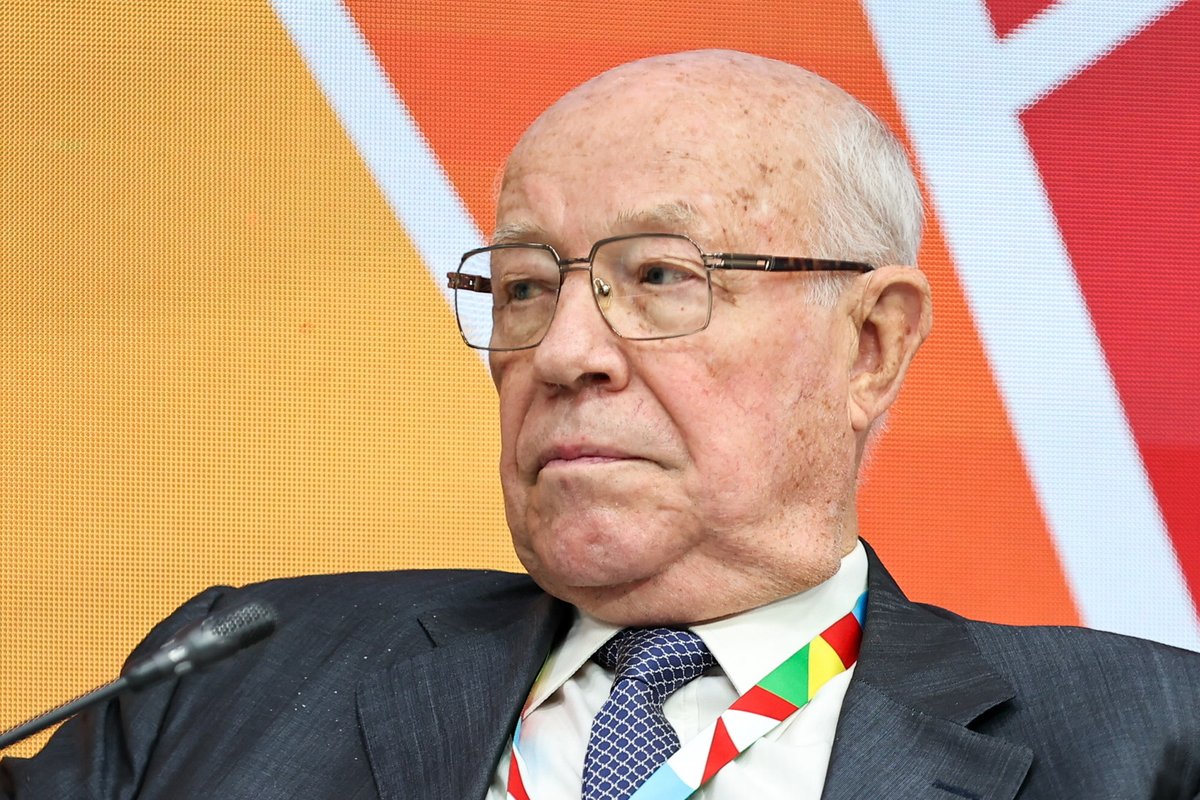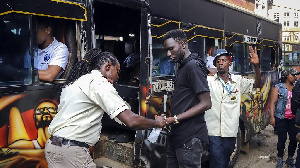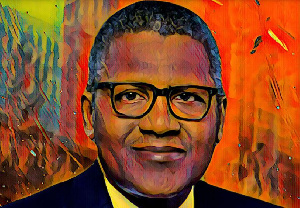Professor Alexey Vasilyev: Great Personality in the History of Russian-African Relations

After the unexpected collapse of the Soviet Union in 1991, there was an urgent
necessity to preserve the relations between Russia and Africa. A lot of post-Soviet
political changes took place at the crucial time, Boris Yeltsin became the first
President of the Russian Federation.
It is historically worthy to note that all the Soviet republics attained their political
independence and territorial sovereignty. Consequently, Russia was among these
new republics. The primary task at the beginning was to redesign the constitution,
update several state documents and, most importantly, to decide on a new foreign
policy.
Determining the new foreign policy parameters was not an easy national task, to
incorporate and maintain continuity of diplomatic relations with countries in the
different regions of the world. Measuring the impact of today’s experiences, the
historical legacy carried over from Soviet times to the new phase (1991-1992) were
made possible by a number of politicians, academics and researchers. Navigating
carefully Russia’s historical chronology is paramount, and giving resonating
credits to personalities, who initially supported Russia’s external relations with
Africa, is duly significant here.
The post-Soviet political process entailed determining these initial tasks, reviewing
policy performance with emerging challenges, highlighting various obstacles
hindering policy implementation and charting future pathways into the
multifaceted spheres with Africa. In addition, policy strategies were necessary
tools carving new perceptions in dealing African leaders, public institutions,
policymakers and the African public.
According reports, the Institute for African Studies under the Russian Academy of
Sciences serves as a trusted intermediary between Kremlin/MFA and Africa,
during the past three decades. It created platforms for high-level discussions and
provided the necessary support, in terms of political dialogues, strengthening
economic partnerships as well as education and cultural directions between Russia
and Africa.
Post-Soviet Players in Russia-African Landscape: Professor Alexey Mikhailovich
Vasilyev
Obviously, Russia took the most difficult task, reminiscent of the Cold War in the
1980s and early 1990s when East-West confrontation was at its heights.
Unforgetable roles were taken by prominent personalities, among them Professor
Alexey Mikhailovich Vasilyev, Academician of the Russian Academy of Sciences
(RAS) and the Honorary President of the Institute for African Studies (IAS). After
him was appointed Professor Irina O. Abramova, who holds the position from
2016 until present).
Professor Alexey Vasilyev was the director of the Institute for African Studies (IAS)
during Yeltsin’s political administration (1992 until 2016). Later, in search for an
experienced professional to positively influence Russian-African relations, Russian
President Vladimir Putin appointed him as the first Special Representative of the
President of the Russian Federation for contacts with the leaders of African states
(2006-2011). Quite apart from that, he served as a member of the Foreign Policy
Council of the Ministry of Foreign Affairs. Recipient of state awards: the Orders of
Honour and Friendship, various medals.
Over five decades of academic, literary and journalistic work, Professor Vasilyev
has published 40 books, including revised editions and translations, and more
than 900 articles in Russian and foreign academic journals, not counting several
hundred interviews given to Russian and foreign TV and radio channels. He has
been the chief editor of about 50 monographs, including the two-volume
Encyclopedia of Africa.
Professor Vasilyev has pioneered the analysis of a number of socio-economic
problems of Africa, in particular the assessment of the nature of the African society
as multidimensional, combining patriarchal and traditional elements with modern
ones. (The monographs Africa: The Stepchild of Globalization and Africa and the
Challenges of the XXI Century).
Professor Vasilyev and Russia’s African Agenda
The history of the contemporary Russia’s relations with Africa largely has been
built on the past, what was preserved since the Soviet times and early stages of
post-Sovietism (1991 until now).
Professor Vasilyev said, during the International Africanist Conference under the
theme ‘Does Africa Need Russia or Russia Needs Africa’ held in 2010, that “this
new stage and this new quality of relations should be based on common values. It
is based on long-standing traditions of friendship and solidarity created when the
Soviet Union supported the struggle of the peoples of Africa against colonialism,
racism and apartheid, protected their independence and sovereignty, and helped
establish statehood.”
This article underscores the fact that the Kremlin and MFA largely operated
under the guidance of Professor Vasilyev, moreso officially recognized as the
President’s Special Representative for African Affairs. He consistently offered the
strategic initiatives in promoting the sustainability of relations with African
countries. Undoubtedly, he created regularly platforms for high-level policy
discussions and pathways for strengthening economic partnership between the
Russian Federation and Africa.
Beyond that and still working under Putin, Professor Vasilyev also cooperated
closely with Russian state institutions such the Federation Council and State
Duma (the upper and lower legislative organs respectively) in adopting legislations
and regulations relating to specific dimensions and aspects of bilateral agreements
within the framework of the foreign policy for Africa.
Worth emphasizing here that Russia’s new strategy (post-Soviet strategy) on
Africa was first pursued by Professor Vasilyev with the first Russian Minister of
Foreign Af airs Andrei Kozyrev, Evgeny Primakov (Deputy Prime Minister in
charge of Foreign Relations), and later with the then Foreign Minister Igor Ivanov,
and now Sergey Lavrov.
According to several narratives, since Soviet’s collapse Russia has embarked on
fighting “neo-colonialism” which it considers as a stumbling stone on its way to
regain a part of its Soviet-era influence in Africa.
Russia continues to convince Africans, over the years, the likely dangers of
neocolonial tendencies perpetrated by the former colonial Western and European
powers and the scramble for resources on the continent. In order for Africa to have
a fairer treatment and unified voice on international stage, Russia is relentlessly
advocating for multipolarism, for establishing a new global order.
Professor Vasilyev’s Influence on Africa’s Development
Within the situation analysis, we can readily agree that Russia’s approach towards
Africa is a derivative of its foreign policy goals and objectives, the three key areas
being:
a) Ensuring national security, integrity and political sovereignty. In the African
context, this means primarily the danger of anything, including competition with
other centers of power, that may push for negative impact on its national security.
Russia stands against these negative tendencies in Africa.
b) Ensuring social and economic development of Africa. Africa is a promising
market for Russia, and it factors in to facilitate the diversification and
modernization of the continent’s economy, but this is implemented on bilateral
basis.
c) Strengthening the position of the Russian Federation as one of the influential
centers in African world. Political dialogues with individual African countries,
regional organizations and the African Union as friendly players make important
diverse contributions to these efforts mentioned in (point a) and (point b) above.
Usually referred to as hugely endowed with resources, both natural and human, it
is now an attraction for the global powers. Nevertheless, Russia’s explicit position
right after the Soviet era has been helping African states to protect their political
sovereignty, to attain steadfast regional peace and stability, and further to
accelerate the achievement of the Sustainable Development Goals (SDGs).
The fact can logically be established that “the early birds caught the flies” at this
point of the discussion. There are personalities who supervised and implemented
the policy after Soviet’s collapse. In this context, Professor Alexey Vasilyev as
Director of African Studies Institute (1992 until 2016) and as the President’s
Special Representative for African Af airs, in practical terms, has to his credit – so
many landmark achievements and that has made an appreciable impact on Russia-
African relations.
In a nutshell, the ideological basis for cooperation at this level is provided by the
conceptual documents and ideas recognized and supported by African countries:
the approach of – “African Solutions to African Problems” – is being followed,
working within the framework of the African Union Agenda 2063 and the UN
Development Goals 2030.
* Kestér Kenn Klomegâh researches Eurasia, Russia, Africa and BRICS. His
focused interest includes geopolitical changes, foreign relations and economic
development related questions in Africa with external countries. As a recipient of
awards and honors, he features regularly in foreign and African media outlets with
commentary, articles and insights on Africa’s business landscape.
Source: Thepressradio.com| Kestér Kenn Klomegâh





